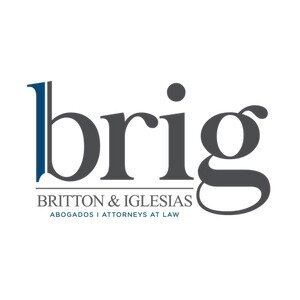Best Restructuring & Insolvency Lawyers in Panama
Share your needs with us, get contacted by law firms.
Free. Takes 2 min.
Or refine your search by selecting a city:
List of the best lawyers in Panama
About Restructuring & Insolvency Law in Panama
Restructuring and insolvency law in Panama provides a legal framework for businesses and individuals experiencing financial distress. Its primary aim is to enable the restructuring of debt, protect creditors' rights, and establish orderly liquidation when necessary. Panama's laws are designed to facilitate business recovery if possible and ensure fair treatment of all parties involved if insolvency becomes unavoidable. The system incorporates court-supervised proceedings, mechanisms for negotiating with creditors, and specific processes for both voluntary and involuntary insolvency cases.
Why You May Need a Lawyer
There are many scenarios where obtaining legal advice in matters of restructuring and insolvency becomes essential. You may need a lawyer if your business is facing mounting debts and struggling to meet financial obligations, or if you are an individual at risk of bankruptcy. Creditors who are concerned about recovering outstanding debts from insolvent debtors also commonly seek legal counsel. Navigating the complexities of restructuring proposals, managing creditor negotiations, understanding court procedures, and ensuring compliance with Panamanian law are all situations where professional legal guidance is invaluable. Early legal assistance often increases the likelihood of a successful restructuring or triggers timely and efficient insolvency proceedings.
Local Laws Overview
The main law governing restructuring and insolvency in Panama is Law 12 of 2016, commonly known as the Insolvency Law. This law outlines the processes for reorganization and liquidation of businesses and individuals. It specifies both voluntary and involuntary insolvency proceedings and provides mechanisms for debtors to negotiate with creditors under court supervision. The law also establishes rules for creditor ranking, debt repayment, asset liquidation, and the protection of employees and other vulnerable groups. Panama's courts play a central role in overseeing and regulating these processes to ensure transparency and fairness. The law favors corporate rehabilitation wherever feasible but enforces liquidation where recovery is not possible.
Frequently Asked Questions
What is the difference between restructuring and insolvency?
Restructuring refers to the process by which a financially distressed individual or business reorganizes its debts to continue operating. Insolvency, on the other hand, is a state where the debtor cannot pay its debts as they come due, potentially leading to liquidation under court supervision.
Who can apply for insolvency proceedings in Panama?
Both debtors and creditors can initiate insolvency proceedings in Panama. Debtors may voluntarily seek legal protection, and creditors can request court intervention if a debtor fails to meet its obligations.
What protections does a debtor receive once insolvency proceedings begin?
After proceedings commence, the debtor is typically protected from individual creditor actions. This "stay" allows time for restructuring plans to be developed or for assets to be properly liquidated under judicial oversight.
How are creditors classified under Panamanian law?
Creditors are classified into various groups, such as secured, unsecured, and privileged creditors. The payment priority during liquidation depends on the class of each creditor as specified by the law.
Can restructuring help avoid liquidation?
Yes, if a feasible restructuring plan is accepted by the majority of creditors and approved by the court, liquidation may be avoided, allowing the business to continue operating under new terms.
How are employee claims treated during insolvency?
Employee salaries and benefits are granted special priority under Panamanian law, ensuring that workers are paid ahead of most other creditors in the event of liquidation.
What are the main steps in insolvency proceedings?
Key steps include filing the petition, court approval, creditor notification, asset valuation, claims verification, negotiation or liquidation plan formulation, and eventual distribution of assets or business continuation as determined by the process.
Can foreign creditors participate in Panamanian insolvency procedures?
Yes, foreign creditors have the same rights as local creditors to submit their claims and participate in proceedings, as per international standards and Panama’s obligations under relevant treaties.
What role do Panamanian courts play in insolvency cases?
Courts oversee and supervise the entire process, approve restructuring or liquidation plans, resolve disputes, ensure creditor and debtor protection, and enforce compliance with the law.
Are there alternatives to formal insolvency proceedings?
Yes, out-of-court negotiations and settlements are allowed and sometimes encouraged, although formal court-supervised processes provide greater legal structure and enforceability.
Additional Resources
For individuals and businesses seeking more information or support regarding restructuring and insolvency in Panama, several resources are available:
- The Supreme Court of Panama - Handles court-supervised insolvency cases.
- Ministry of Commerce and Industries of Panama - Provides guidance on business regulations, including insolvency matters.
- Panama Bar Association - Offers directories of qualified attorneys specializing in restructuring and insolvency.
- Chambers of Commerce - Can assist with business consultations and referrals.
- Public Registry of Panama - Maintains records related to insolvent entities and proceedings.
Next Steps
If you are considering restructuring or face insolvency in Panama, it is crucial to act quickly. Begin by consulting a qualified lawyer with experience in Panamanian insolvency law. Gather and organize your financial records and any relevant contracts or agreements. Schedule a meeting to assess your situation and explore options such as restructuring, negotiation, or initiating formal proceedings. Only a legal expert can guide you through the requirements and protect your interests at every stage. Early professional advice can make a significant difference in securing a sustainable outcome or minimizing losses. Remember, taking swift and informed action is the best step toward resolving financial distress under Panamanian law.
Lawzana helps you find the best lawyers and law firms in Panama through a curated and pre-screened list of qualified legal professionals. Our platform offers rankings and detailed profiles of attorneys and law firms, allowing you to compare based on practice areas, including Restructuring & Insolvency, experience, and client feedback.
Each profile includes a description of the firm's areas of practice, client reviews, team members and partners, year of establishment, spoken languages, office locations, contact information, social media presence, and any published articles or resources. Most firms on our platform speak English and are experienced in both local and international legal matters.
Get a quote from top-rated law firms in Panama — quickly, securely, and without unnecessary hassle.
Disclaimer:
The information provided on this page is for general informational purposes only and does not constitute legal advice. While we strive to ensure the accuracy and relevance of the content, legal information may change over time, and interpretations of the law can vary. You should always consult with a qualified legal professional for advice specific to your situation.
We disclaim all liability for actions taken or not taken based on the content of this page. If you believe any information is incorrect or outdated, please contact us, and we will review and update it where appropriate.
Browse restructuring & insolvency law firms by city in Panama
Refine your search by selecting a city.

















